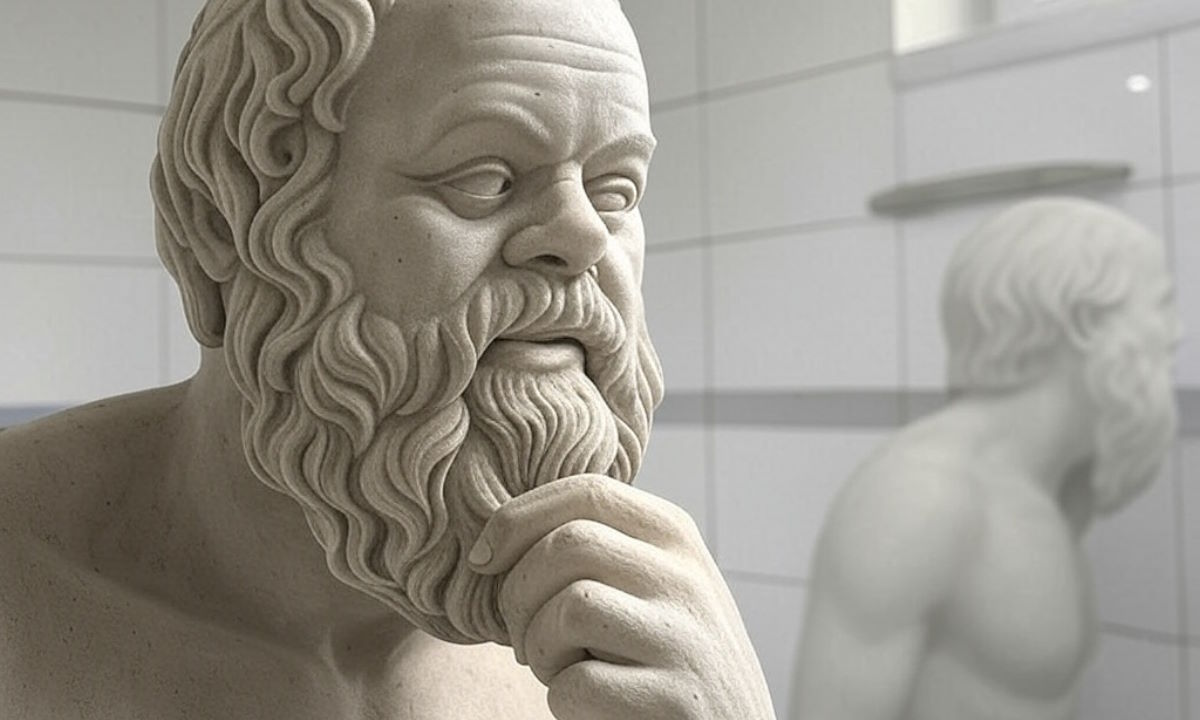Shaving in ancient Greece was more than just a matter of hygiene—it was a statement of identity, philosophy, and social status. What is now a simple daily routine was once a symbolic act that reflected a man’s discipline, status, and even his philosophical outlook.
Shaving as a Social and Philosophical Statement
From the Classical period onward, facial grooming was associated with maturity and self-discipline. Philosophers often wore beards as a mark of wisdom, while young officials and soldiers kept their faces clean-shaven as a sign of discipline and readiness for action.
But shaving in ancient Greece wasn’t just a private affair. It was a social event. Professional barbers (koureís) ran busy barber shops in city centers, where men would gather not only for a shave or a haircut but also for lively political discussions, philosophical debates, and daily gossip. In many ways, the barber shop functioned like a modern-day café, where news and ideas circulated freely.
The Tools of the Trade
Shaving tools in ancient Greece were simple but effective. Razors were typically made of bronze or iron, with a sharp, knife-like blade rather than the modern straight razor design. Archaeological finds dating back to the 6th century BCE confirm the widespread use of these razors.
To keep their blades sharp, Greeks used whetstones, and to soften the skin, they applied olive oil or aromatic resins—early versions of what we’d now consider pre-shave oils.
Despite the lack of modern safety razors, barbers were highly skilled, and cuts were rare. Their methodical technique ensured a smooth shave. However, in times of war, when soldiers had to shave themselves without professional help, nicks and cuts were far more common. In fact, Alexander the Great insisted that his soldiers be clean-shaven to prevent enemies from grabbing their beards in battle—a detail that underscores the practical as well as the symbolic significance of shaving.
A Cultural and Ritualistic Practice
The perception of shaving varied across Greek city-states. In Athens, a clean-shaven face reflected the city’s preference for simplicity and refinement, while in Sparta, beards were a symbol of masculinity and strict discipline.
For young men, their first shave was a rite of passage, marking their transition into adulthood and citizenship. It was not just about appearance—it was a symbolic moment of integration into society.
The Influence of Rome and the Evolution of Grooming
By the late Classical era, under Roman influence, shaving took on a more luxurious aspect. Wealthy Athenians began importing expert barbers from Egypt, who were skilled in facial grooming and full-body hair removal. Shaving became an art form, with scented oils, exfoliation techniques, and specialized grooming rituals becoming more refined.
However, shaving trends weren’t static. At times, beards came back into fashion, especially among Stoic philosophers, who viewed them as a symbol of simplicity and self-sufficiency. Others, like the Cynics, embraced beards as a rebellion against societal norms and vanity.
More Than Just a Shave
Ultimately, the history of shaving in ancient Greece is more than a story of personal grooming—it reflects broader cultural, philosophical, and social ideals. Whether as a symbol of discipline, wisdom, rebellion, or luxury, shaving was a ritual that went beyond the razor’s edge.









